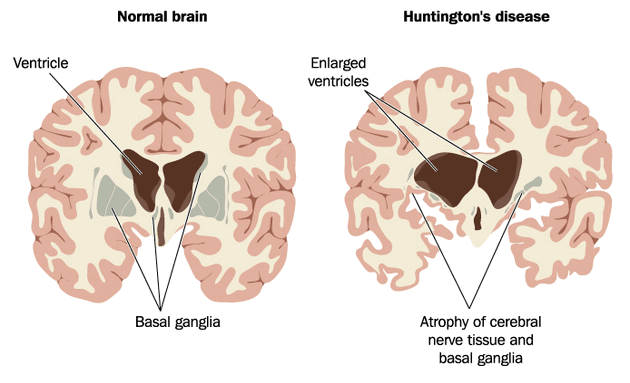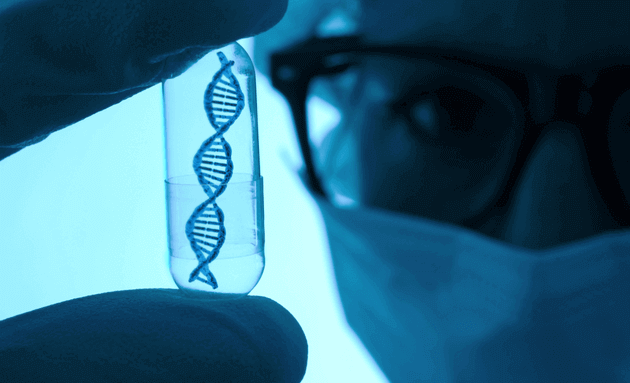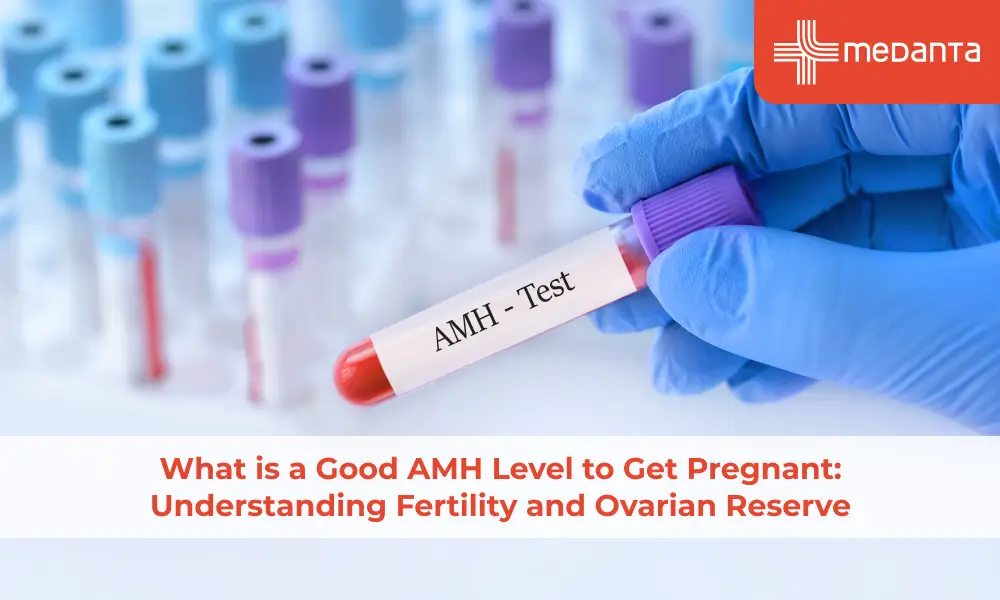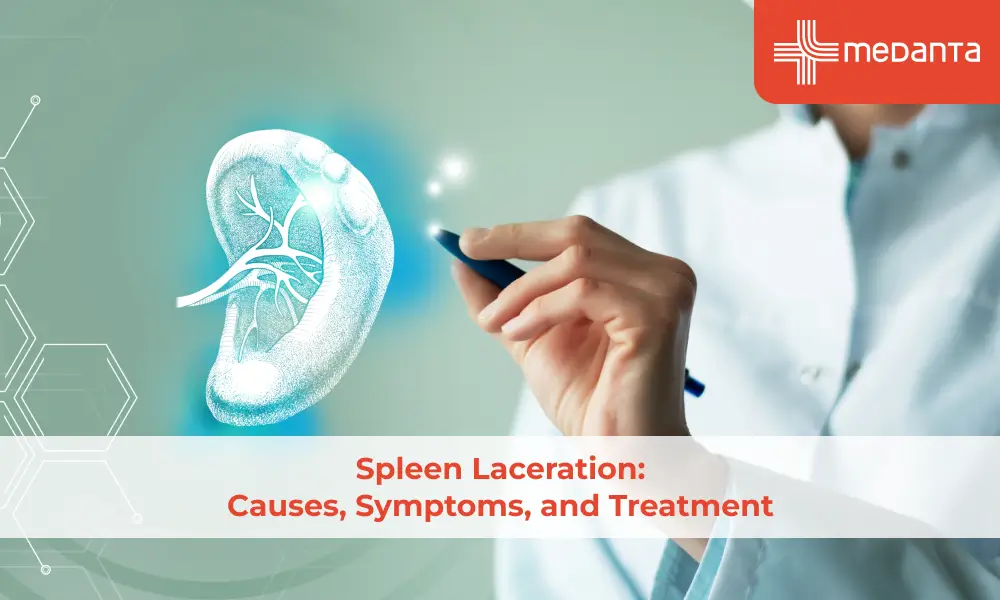Huntington's Disease - a Rare Genetic Disorder of the Brain

Huntington’s Disease is a rare genetic disorder of the brain that causes a gradual breakdown of the nerve cells in your brain.
A study from the Department of Genetics, Delhi University, South Campus, found that increasing levels of insulin signalling can restore the cell-level functioning of the brain, hindering the progression of the disease. However, more studies have to be conducted to corroborate the findings.
What Is Huntington’s Disease and Why Is it Incurable?

Huntington’s Disease is a rare, progressive neurodegenerative disorder affecting 1 out of 10,000 people in India. The disease is caused due to a defective gene and leads to major changes to the central part of your brain, affecting mood, movement, and thinking capabilities.
It is an inherited disease caused due to a defective gene on chromosome 4 out of the 23 that determine a person’s entire genetic code. The neuronal loss typically starts with the striatum (a part of your brain responsible for voluntary movements) and gradually affects subcortical and cortical regions of your brain that are responsible for cognitive functions like thinking and information processing from all the five senses in your body.
Signs and symptoms of Huntington’s Disease usually surface after the age of 30, but if you experience signs by the age of 20, your condition will be categorised as Juvenile Huntington’s. Early diagnosis of this disease often exhibits different symptoms and progresses faster than usual.
The concept of editing genes to cure a disease like Huntington's Disease may seem like the obvious answer, but researchers are taking every step to ensure they have the safest and most effective treatment method before snipping the sequence of the disease-causing DNA.
How Does Huntington’s Disease Affect Your Life?
Huntington’s Disease is caused by the abnormal repetition of a specific DNA sequence at the tail end of the gene Huntingtin. It was first described as Hereditary Chorea by physician George Huntington in 1872.
The defective gene releases a toxic protein that accumulates and damages the neurons of the brain cell. Defective Huntingtin protein leads to changes in your brain cells that cause abnormal involuntary movements, a steady decline in thinking and reasoning, and various other mental health disorders. This defect is dominant, implying that anyone who inherits it from a parent will eventually develop this disease.
What Are the Signs and Symptoms of Huntington’s Disease?
Huntington’s Disease usually exhibits movement, cognitive, and psychiatric disorders with a spectrum of signs and symptoms that may vary in impact.
Signs and Symptoms of Movement Disorders from Huntington’s Disease
Signs and symptoms may include both voluntary and involuntary impairments like:
- Chorea, or involuntary jerking and writhing movements
- Dystonia, or muscle rigidity or contractions
- Abnormal or slow eye movements
- Impaired posture, balance, and gait
- Speech difficulties and trouble swallowing
Signs and symptoms of Psychiatric Disorders from Huntington’s Disease
Depression is a known psychiatric condition for people living with Huntington’s Disease. This is not only because of diagnosis but appears to occur because of a brain injury and ensuing changes in brain functioning. Signs and symptoms include:
- Feeling irritable, sad, apathetic
- Social withdrawal
- Insomnia
- Loss of energy or fatigue
- Frequent suicidal thoughts

Other psychiatric disorders include:
- OCD, or Obsessive Compulsive Disorder, characterised by repetitive, intrusive behaviours and thoughts
- Mania, causing an elevated mood and inflated self-esteem
- Bipolar Disorder, exhibiting an extreme spectrum of depression and mania
Signs and Symptoms of Cognitive Disorders from Huntington’s Disease
Cognitive impairments associated with Huntington’s Disease are:
- Difficulty focusing, prioritising, and organising tasks
- Lack of flexibility in thought process, behaviour, or action (also known as perseveration)
- Lack of impulse control leading to impulsive behaviour and sexual promiscuity
- Lack of awareness of one’s own behaviour
- A diminished pace in thought processing and finding words
- Difficulty learning and retaining new information
How Is Huntington’s Disease Diagnosed?

A genetic test is now available to confirm the signs and symptoms for Huntington’s Disease. Doctors test for the defective gene for huntingtin protein as the cause for your symptoms or detect the defective gene in people who haven’t shown any symptoms yet to ascertain the risk.
Genetic counselling is highly recommended for anyone going through a genetic test, both before and after diagnosis.
Living With a Person With Huntington’s Disease

As the disease progresses, a person affected by Huntington’s Disease will need immense amounts of time, support, and patience. Needless to say, the financial burden is no less because of the rarity of this condition.
As a caregiver, it can become tiring, difficult, and emotionally and physically exhausting. It is always best to seek support as and when it’s required, be it from the doctors, or from your friends and family. However, here are a few things to get you started:
- Listen more and be attentive: The person you’re caring for is going through a lot of major changes. The way we communicate will have to change based on their condition. Be attentive, avoid distractions, and be as patient as you can.
- Track their temperatures regularly: People with Huntington’s Disease often have body temperature changes, that in turn affect their moods drastically. Always monitor signs of cold or heat and be prepared.
- Don’t ignore the big decisions: As hard as it may sound, there will be a time when the patient will not be able to make any decisions on their own. It will then be time for you to step up and take responsibility.
- Don’t hesitate to ask for help: Be it emotional, medical, or financial - seek help right when you need it. No need or query is insignificant when it comes to matters like caring for a person with Huntington’s Disease.
- Take care of yourself: Give yourself a breather once in a while and take care of your needs as well. Caring for someone with Huntington’s Disease can be quite exhausting. Remember to keep yourself healthy, physically and emotionally.
Cure for Huntington’s Disease is still underway. Until then, we can only use treatment methods to relieve the symptoms and make life better for the affected persons. The right support will make a lot of difference.






